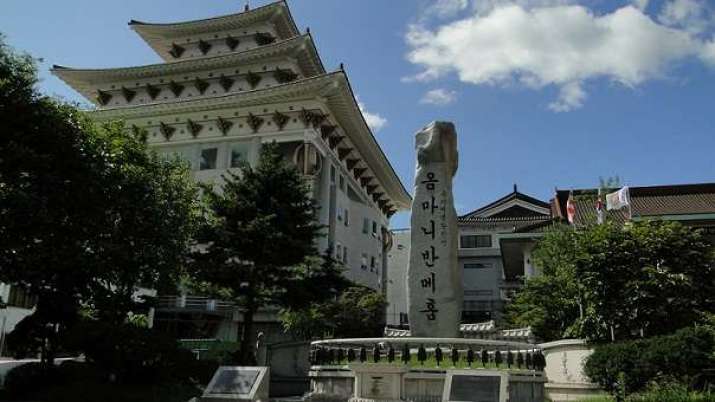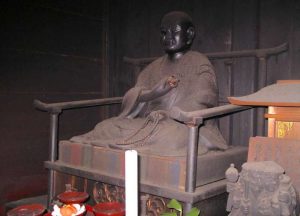
The Jingak Order, a school of South Korean Buddhism, has become implicated in allegations of sexual misconduct. Two female employees who were working for the order’s Social Welfare Foundation have made formal complaints against the eldest son of Jingak Order leader Chong-in, identified only by his surname Kim.
According to South Korean media, the two women filed their complaints in December. Despite their allegations, no internal inquiry has been carried out, but a police investigation is ongoing.
Kim, 40, was appointed as marketing manager of the Jingak Social Welfare Foundation in August 2013, following the appointment of his father as the leader of the Jingak Order in May 2013. He holds the second-highest position in the organization and has been given the nickname “Jingak Prince” by members of the sect. Kim is known to exert a great deal of influence inside the order and the allegations have not affected his position.
One of the victims alleges that there were two instances in which Kim groped her. The first occurred at a karaoke bar in 2015, during a dinner for staff of Jingak Social Welfare Foundation. The first incident, according to the women, was brief as it was interrupted by one of her coworkers, who intervened. Later the same night, Kim allegedly approached her agai, touching her backside and thigh. According to the woman, Kim was not drunk at the time and sexually harassed her on a separate occasion in 2017, this time more explicitly. The other woman accused Kim of touching her cheek and hugging her against her will in 2017.
Kim has denied all allegations. He stated in an interview with the Hankyoreh newspaper that he does not know the victims and has never sexually harassed them. Kim added that because he is aware of his father’s position within the Buddhist sect, he has always attempted to keep a low profile and pay extra attention to his actions to make sure he does not cause any trouble.
The Jingak Order (대한불교진각종) is an esoteric Vajrayana Buddhist order founded in 1947 by Grand Master Hoedang (1902–1963). It is South Korea’s third-largest Buddhist order, following the Jogye and Taego orders (both Seon or Korean Zen orders), with an estimated 700,000 followers nationwide. In addition to temples in South Korea, the order also has parishes in Canada, China, Nepal, Sri Lanka, and the United States.
The Jingak Order emphasizes devotion to Vairocana Buddha over Shakyamuni Buddha. Contrary to the rules of most other schools of Buddhism, monastics of the Jingak Order are permitted to grow their hair, marry, and have children. Married couples may even preach together.
The order seeks to apply Buddhist principles and teachings to social improvement, following the principles of engaged Buddhism. The Jingak Social Welfare Foundation is the order’s expression of this aim, operatiing 44 social welfare facilities, such as elderly welfare centers and daycare centers commissioned by local governments.
The sexual misconduct allegations are part of the #MeToo movement that belatedly took off with a fervor in South Korea’s male-dominated society, where discussion of sexual misconduct has long been taboo. Several public figures, including authors, politicians, and public prosecutors, have been convicted following #MeToo allegations. Earlier this week, a South Korean human rights watchdog announced that it would launch the country’s largest-ever investigation into sexual abuse in sports after an Olympic speed skating champion accused her former coach of abuse, triggering a wave of similar complaints from other athletes.
See more
Buddhist sect embroiled in sexual misconduct allegation (The Korea Times)
[단독] “진각종최고지도자아들에게성추행당했다” (Hankyoreh)
진각종성추행관련자처벌촉구성명잇따라 (Hankyoreh)
South Korea launches ‘biggest ever’ investigation into sex abuse in sport as country’s #MeToo wave continues (The Telegraph)













